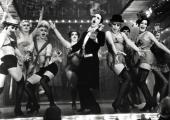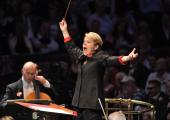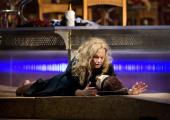Moser, London Philharmonic Orchestra, Michail Jurowski, Royal Festival Hall

Tough, theatrical programme culminates in a dizzying 1970s symphonic masterpiece
Imagine how discombobulated the audience must have felt at the 1962 premiere of Shostakovich’s most outlandish monster symphony, the Fourth, 26 years after its withdrawal at the rehearsal stage. Those of us hearing its natural successor, Schnittke’s First Symphony, for the first time live last night didn’t have to (imagine, that is).





